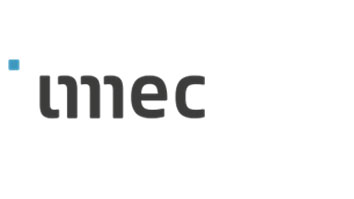Expanding access to advanced chip design capabilities: Launch of the EU Chips Design Platform
A consortium of 12 European partners has been selected in the framework of the European Chips Act to develop the EU Chips Design Platform. This cloud-based platform will facilitate access to advanced semiconductor design infrastructure, training, and capital for fabless semiconductor start-ups, small and medium enterprises and research organizations. With the EU Chips Design Platform, coordinated by imec, an important new resource is being put in place to support technological development and industrial competitiveness across Europe. The German partners are the Fraunhofer institutes and the Leibniz IHP cooperating in the Research Fab Microelectronics Germany (FMD).

The semiconductor industry is the backbone of modern technology, powering everything from smartphones to advanced medical devices. With the EU Chips Act, Europe is dedicated to increasing its global semiconductor market share. Next to the launch of European pilot lines that aim to develop key technologies for semiconductor innovation, the EU Chips Act has proposed the EU Chips Design Platform as a vehicle to support the growth of fabless chip companies in Europe.
The EU Chips Design Platform will enable fabless companies to access the resources they need quickly and efficiently via a cloud-based virtual environment, offering chip design resources, training, and capital. Coordinated by imec, twelve key European research players in the semiconductor ecosystem have joined forces in a consortium to create this design platform.
The platform aims to onboard the first start-ups and small and medium enterprises by early 2026, providing them with low-barrier access to European design capabilities, including route-to-chip fabrication, packaging, and testing. It will offer customized support to access commercial electronic design automation (EDA) tools, intellectual property (IP) libraries, EU Chips Act pilot line technologies, and access to design IP repositories, including open-source options. Additionally, the platform will feature a start-up support program with incubation, acceleration, and mentoring activities next to financial assistance to help early-stage companies turn their innovative ideas into reality.
“The EU Chips Design Platform will provide crucial resources for start-ups and SMEs to accelerate their design journey and bring their business ideas to market faster. By reducing the barriers to access of design expertise, including EDA tools and IP, and drastically lowering chip design and fabrication costs and time-to-market, we will spark the growth of the European chip design industry,” stated Romano Hoofman, imec project coordinator.
How the EU Chips Design Platform fits into a wider European strategy
The EU Chips Design Platform is part of a broader, coordinated effort to build a resilient European semiconductor ecosystem. While this new platform provides developers with the tools and infrastructure needed for chip design, the 30 national competence centers deliver hands-on expertise and local support in 28 countries across Europe.
Pilot lines like APECS, nanoIC, Fames, PIXEurope, and WBG continue the process by providing access to manufacturing technologies required for prototyping, testing, and scaling production. In turn, the recently launched aCCCess project ensures that these activities of the Chips for Europe Initiative are well connected, creating a coordinated pathway that supports European innovation at every stage.
Coordination Team of the EU Chips Design Platform
The Platform Coordination Team of the EU Chips Design Platform consists of imec (Belgium), the French Alternative Energies and Atomic Energy Commission (CEA, France), Fraunhofer-Gesellschaft zur Förderung der angewandten Forschung e. V. (Germany), Leibniz Institute for High Performance Microelectronics (Germany), Silicon Austria Labs (Austria), Fondazione Chips-IT (Italy), Spanish National Research Council (CSIC, Spain), International Iberian Nanotechnology Laboratory (Portugal), Eindhoven University of Technology (The Netherlands), Tampere University (Finland), CVUT (Czech Republic) and AGH University of Krakow (Poland). The grant agreement with the Chips JU, through the European Union’s Digital Europe program, is ongoing and will be signed later this year. The project will run from 2025 until the end of 2028.
Follow the European Chips Design Platform LinkedIn page for more updates.

About the Research Fab Microelectronics Germany (FMD)
As a cooperation between 13 Fraunhofer institutes and the Leibniz institutes FBH and IHP, the Research Fab Microelectronics Germany (FMD) is the central point of contact for all issues concerning research and development in the field of micro and nanoelectronics in Germany and Europe. As a one-stop shop, FMD has been combining scientific excellence, application-oriented technologies and system solutions of the cooperating institutes into a broad customer-tailored technology portfolio since 2017. The cooperating institutes of the FMD are: Fraunhofer AISEC, Fraunhofer EMFT, Fraunhofer ENAS, Fraunhofer FHR, Fraunhofer HHI, Fraunhofer IAF, Fraunhofer IIS, Fraunhofer IISB, Fraunhofer IMS, Fraunhofer IMWS, Fraunhofer ISIT, Fraunhofer IPMS, Fraunhofer IZM, Leibniz FBH, Leibniz IHP. For more information, please visit: www.forschungsfabrik-mikroelektronik.de/en
About the Fraunhofer-Gesellschaft
The Fraunhofer-Gesellschaft, headquartered in Germany, is one of the world’s leading organizations for applied research. It plays a major role in innovation by prioritizing research on cutting-edge technologies and the transfer of results to industry to strengthen Germany’s industrial base and for the benefit of society as a whole. Since its founding as a nonprofit organization in 1949, Fraunhofer has held a unique position in the German research and innovation ecosystem. With nearly 32,000 employees across 75 institutes and legally independent research units in Germany, Fraunhofer operates with an annual budget of €3.6 billion, €3.1 billion of which is generated by contract research — Fraunhofer’s core business model. For more information, please visit: www.fraunhofer.de/en
Press Contact
Research Fab Microelectronics Germany (FMD)
Romy Zschiedrich, Head of Communications
romy.zschiedrich@mikroelektronik.fraunhofer.de
+49 173 5434 126
Last modified:
 Advanced Packaging and Heterogeneous Integration for Electronic Components and Systems
Advanced Packaging and Heterogeneous Integration for Electronic Components and Systems